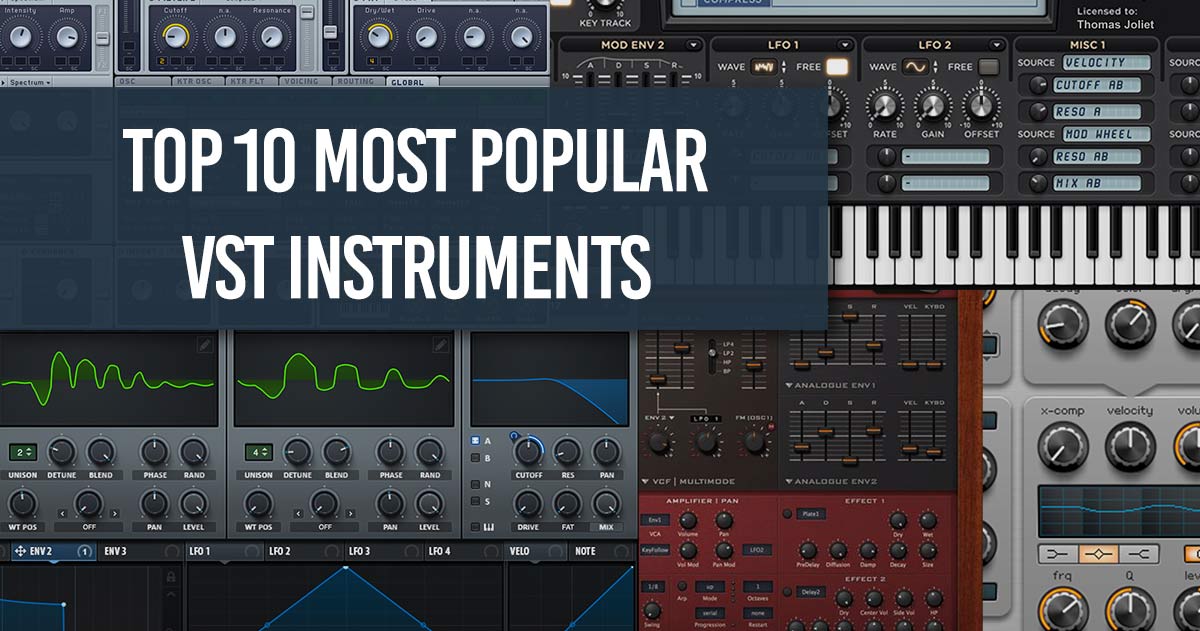
10: Native Instruments FM8
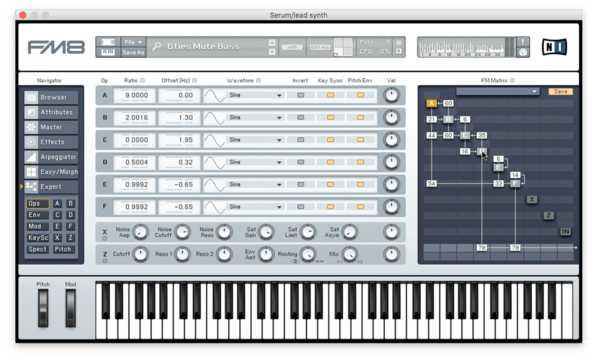
This great sounding FM synth was used by Skrillex. FM8 is probably not a synth for beginners, as it takes a while to get your head around FM synthesis. Nevertheless it's still a great synth used by plenty of pros.
Pro's
+ great presets
+ ability to morph patches
+ great arpeggiator
Cons
– no "sample import" option
– FM synthesis isn't easy (probably not a synth for beginners)
9: Spire
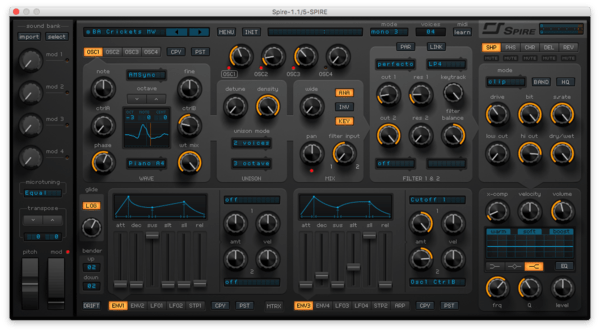
Spire is an awesome additive hybrid synth. It sounds very modern and punchy and has a lot of great presets. Our only wish is that it would have envelope shapes shown in a display, like Serum. The envelopes are great though!
Pro's
+ very nice oscillator warping (with display!)
+ very good presets
+ plenty of features like Modulation Matrix
Cons
– envelope shapes not shown in displays
8: U-he Diva
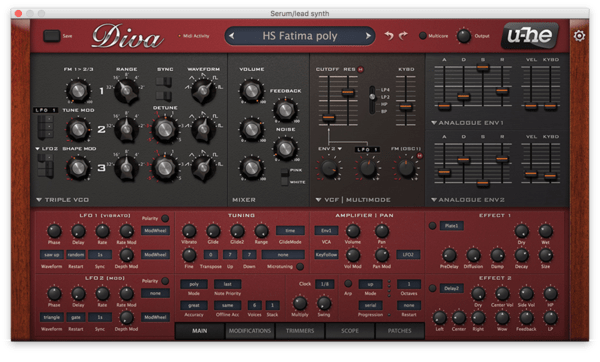
U-he Diva is a synth very similar to the Minimoog. It has a very analog-like sound quality and is pretty simple to use. It probably won't create crazy complex dubstep wobbles, but it's perfect for more classic synth patches.
Pro's
+ easy-to-use interface
+ great analog sound quality
+ good presets
Cons
– CPU heavy
– limited flexibility
– no arpeggiator
7: Reaktor 6
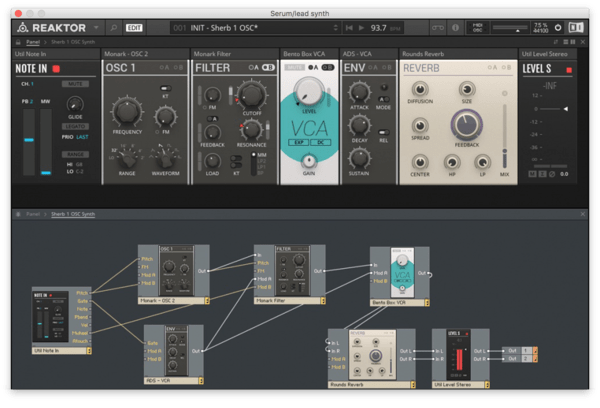
Reaktor 6 is a synth for you if you like to build patches from scratch. It gives you a lot of flexibility in the wiring part (lower part of the screenshot) while keeping things clean at the top.
Pro's
+ ability to create your own patches using Blocks
+ nice analog warm sound
Cons
– blocks are monophonic
– CPU heavy
– building synths with blocks isn't for beginners
6: Kontakt 5
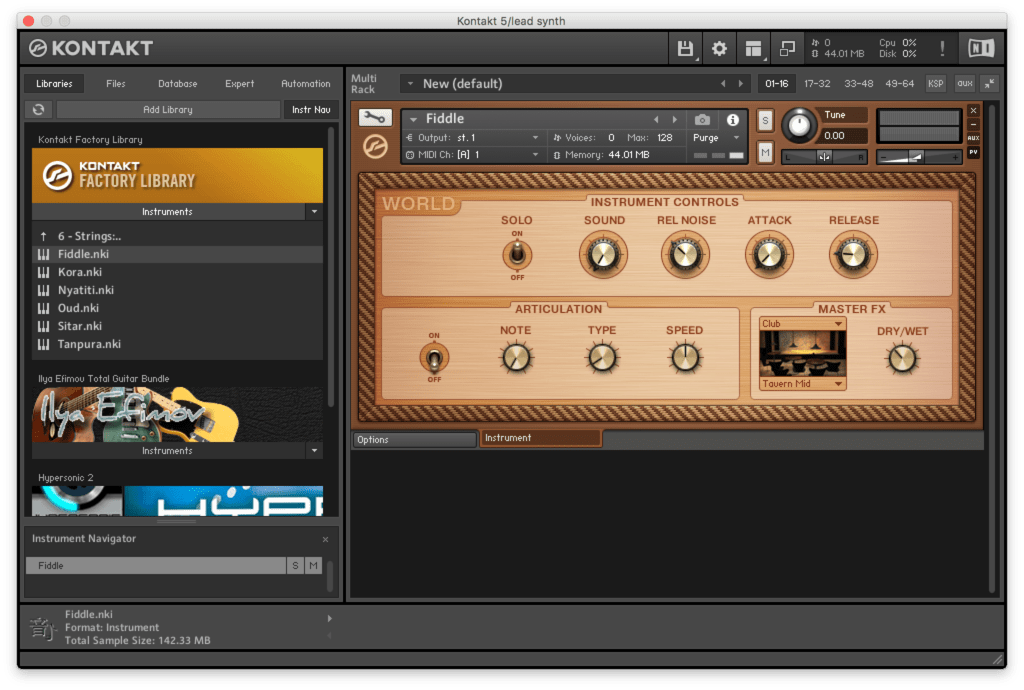
Kontakt 5 is a sampler used a lot in film score compositions. It has a lot of high quality libraries which allow give you access to realistic sounding instruments. It has a free version called Kontakt Player. As for free libraries we made a list some time ago with 10 of our favourites.
Pro's
+ a lot of professional sample libraries
+ a great factory library
+ plenty of free sample libraries
Cons
– some libraries are huge (Hans Zimmer piano is 450gb)
– every library is a separate purchase and they're expensive
– RAM & CPU heavy
If you're interested in free kontakt libraries, check out this article!
5: Omnisphere 2

Omnisphere is probably the biggest ROMpler - with over 50gb of sample libraries it gives you access to incredible instruments. You'll find here everything, starting from classic pianos and ending on the most bizarre sounds. Now Omnisphere is also a wavetable synthesizer which allows you to import sounds and transform them into synth patches.
Pro's
+ incredible patches & instruments
+ ability to load up your own sounds
+ wavetable synthesis in the new version
Cons
– very big (50gb+)
– some presets are way too loud
– external sample editor necessary to loop samples you want to import
4: Nexus

Nexus is also a ROMpler - it plays sample libraries you buy in expansion packs. It allows for modification of every sound with filters, EQ and effects. The patches in Nexus are very high quality and instantly usable. Nexus found its way to studios of David Guetta, Steve Aoki or Marshmello. It's a must-have for EDM production.
Pro's
+ great library of samples & presets
+ incredible built-in patches
+ ability to edit every patch
Cons
– quite big (10gb+)
– you need to order expansions for more sounds
3: Sylenth1
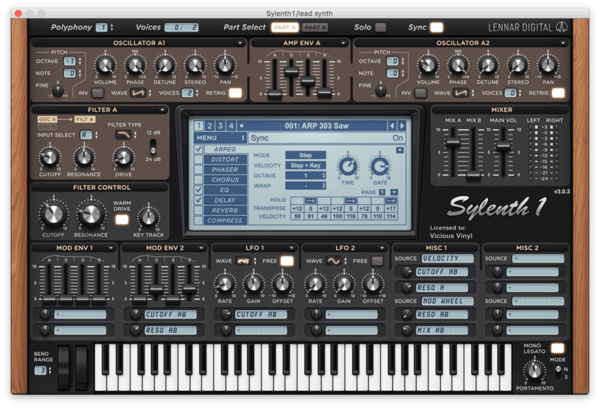
This synth's warm sound has made its way into the studios of producers such as Flume or Martin Garrix. It's great for basic sounds, but its limited possibilities will make it difficult to create complex sounds. Still, it's a great synth which you can hear in hundreds of EDM hits. Its another advantage is its simplicity which makes it a great synth for beginners.
Pro's
+ great warm classic sound
+ very simple to use
+ great preset packs
Cons
– limited possibilities (no wavetable synthesis or FM modulation)
– not the best effects
– no LFO customization
Check out our packs of sylenth presets!
2: NI Massive
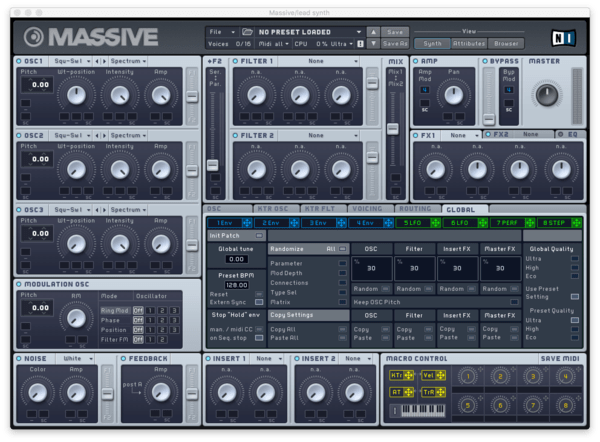
Massive is probably the synth that built dubstep, but its useful for much more than that. Its biggest attribute is the sound which is, as the name suggests, massive. Strong wavetables are here supported by very good effects.
Pro's
+ very good built-in wavetables
+ incredible preset packs
+ great chorus effect
Cons
– can be confusing to beginners
– no compression effect
We offer lots of massive presets, check them out here!
Bonus: Free Online Course
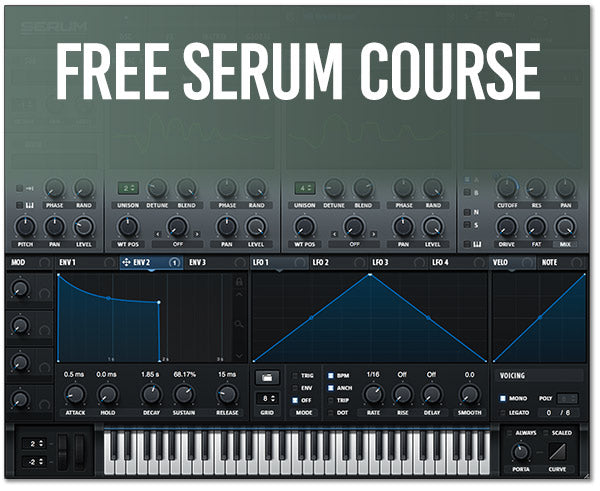
Learn the basics. You will understand the interface and signal flow of Serum as well as the basics of synthesis. We will have a look at all OSC's, we will apply filter envelopes to various knobs, using different filter types and talk about the ADSR curves.
Pro's
+ it's free
+ learn how to use serum
+ over 70min of content
Cons
– Nope, no cons here! :)
1: Xfer Serum
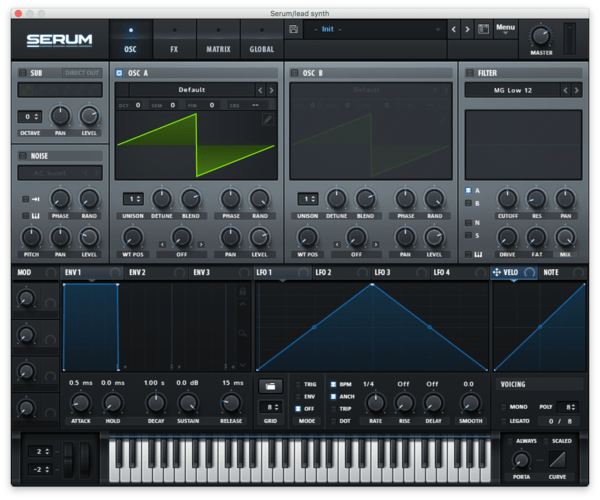
Serum, with its incredible potential of loading up sounds and transforming them into wavetables, combined with easy to use and awesome-looking UI, is clearly the most popular soft synth today.
Check our in-depth music production courses, take a look inside: Free Mini Course: How to use Serum
Pro's
+ powerful wavetable synthesis
+ very visual, relatively easy to learn
+ plenty of very good effects
Cons
– CPU heavy
– brighter sound than most synths
– weak built-in presets
See these Serum presets by PML
Author: k-pizza
I’m a music maker who likes to share his experiences with other producers. I regularly show up with tutorials, articles & project files at PML.
Skype lessons with me: http://bit.ly/pml_s_one2one